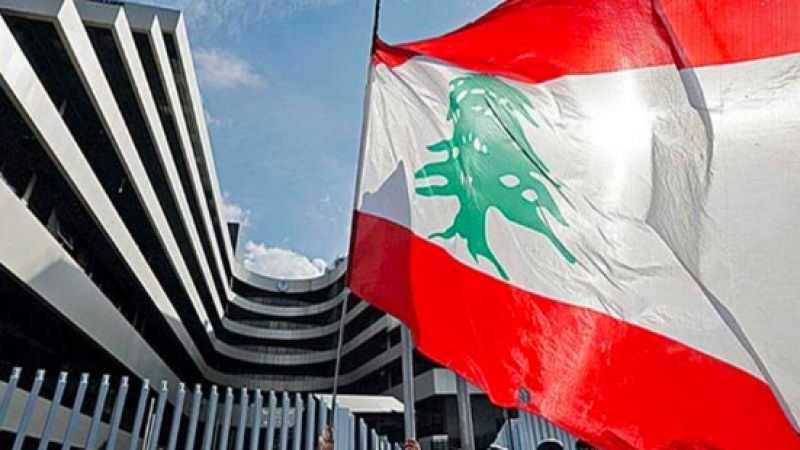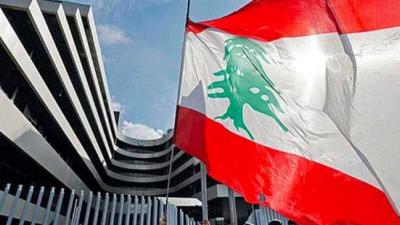There is no disagreement—at least as it is assumed—that the achievement of maritime border demarcation occurred at a rare intersection of international interests, contributing to the agreement's realization. However, what is concerning is that voices have begun to rise—most of them from a single political line—promoting the idea that Lebanon, with its gas wealth, no longer needs to agree with the IMF to secure $3 billion over four years.
Undoubtedly, gas wealth, regardless of its financial size (estimates vary widely from $100 billion to $1 trillion) and the timing of production and revenue benefits, constitutes a winning card for the Lebanese. It comes amid exceptional circumstances, making gas a vital strategic commodity, as studies suggest, for many years to come, extending two or three decades ahead. Prices for gas, measured through specific global indicators linked to what is known as thermal units, have soared to record levels. To illustrate the scale of the increase, European natural gas prices were around $10 per million thermal units about two years ago but reached $100 per million thermal units in 2022, equivalent to $580 per barrel of crude oil.
This reality does not imply that the country can revive its economy without collaboration with the IMF for several reasons, not least the oversight exercised by the Fund on implementing required reforms. The trust it helps restore concerning global market perceptions of the Lebanese situation, in addition to the guarantees it can provide, expedite Lebanon's return to global markets. Without this return, no rescue plans can succeed.
These truths, which political parties should now understand, raise questions about why some are jumping over this reality and calling for rescue without the IMF. What are the true reasons driving them to attempt to obstruct collaboration with the Fund?
In previous considerations, political opposition was attributed to a reluctance to comply with painful reform conditions. For instance, raising service tariffs like electricity, reducing the public sector, ceasing the pegging of the lira to the dollar, combating tax evasion, and smuggling. These reform conditions should no longer be as terrifying, given that they are now behind us. The electricity tariff has been raised, although implementation might be slightly delayed; due to the lira's collapse, the public sector no longer poses a real obstacle to public financial balance. The lira has collapsed, and everyone acknowledges that the real lira rate exists in the free market, and tax evasion should not be a matter of contention.
If we consider that reform items are no longer a valid reason for opposition, what remaining considerations are there?
Originally, it was claimed that certain political parties preferred not to engage with the IMF to safeguard sovereignty. These parties believe that the United States is the main controller of the Fund, and thus, sovereignty might be compromised within this equation. However, this concern has also become irrelevant, evidenced by the mediating and protecting role played by Washington in achieving the maritime demarcation agreement.
So what remains as valid reasons for some attempts to promote that an agreement with the Fund is unnecessary, claiming that the gas wealth to be extracted is the alternative?
In reality, it seems that the real issue does not pertain to oversight by the IMF or the potential American role through the Fund, but rather the required role that Gulf countries must play in accompanying the agreement with the Fund and financing projects post-agreement. Indeed, Lebanese parties opposing—either implicitly or explicitly—the engagement with international financial institutions have closely monitored information regarding the amount of Gulf funds that could be invested in Lebanon if an agreement with the IMF were achieved.
It was no secret; the Fund's officials confirmed that the reliance is not on the $3 billion they would provide over four years but on around $12 billion likely to flow into the Lebanese economy from supporting donor countries. It was well understood that much of this funding would come from the Gulf, particularly from Saudi Arabia. Consequently, it was known that this strong "return" of the Gulf to Lebanon is what concerns the IMF opponents. However, they slightly softened their public opposition for fear of public backlash in the aftermath of the collapse. Today, they have exploited the demarcation and the near commencement of exploration to try and once again oppose cooperation with the IMF, cutting off the path for Arab returns to the Lebanese arena.
Will these objections succeed in halting the agreement process with the IMF?
The answer to this question is difficult, but monitoring developments may provide an indication. Officials have promised—away from the media—to IMF officials to implement the four required items to finalize the agreement before the end of November. This means that Parliament will continue legislating after the constitutional deadline for electing a president on October 31. Will this happen? Will the capital control and bank restructuring laws be approved before the set deadline? Based on what unfolds in this regard, clearer predictions can be made about the fate of the rescue agreement with the IMF.




